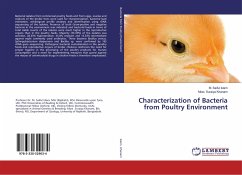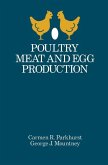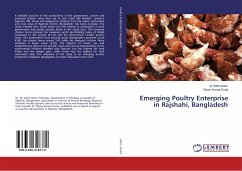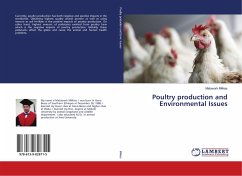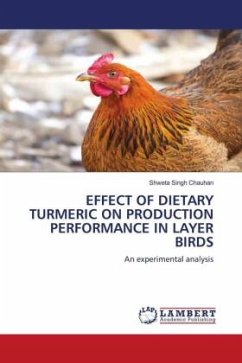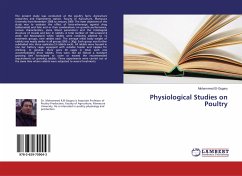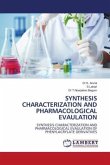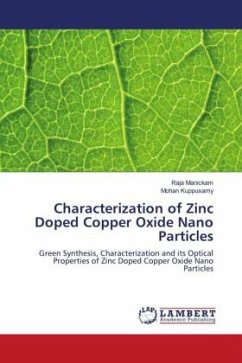Bacterial isolates from commercial poultry feeds and from eggs, ovaries and oviducts of the broiler hens were used for characterization, bacterial load estimation, antibiogram profile analyses and identification using rDNA sequencing of the isolates. Presence of both Gram-positive and negative bacteria in the environment was indicated and bacterial loads in terms of total viable counts of the isolates were much higher in the reproductive organs than in the poultry feeds. Majority (33.33%) of the isolates was sensitive, 28.33% hypersensitive, 25.0% resistant and 13.33% intermediate against eight commonly used antibiotics. Three bacteria Bacillus cereus, Sphingobacterium daejeonens and Bacillus sp. were confirmed by 16S rDNA gene sequencing. Pathogenic bacterial contamination in the poultry feeds and reproductive organs of broiler chickens reinforces the need for proper hygiene in the processing of the poultry products for human consumption and a need for implementing measures thatguard against the misuse of antimicrobial drugs in chicken feeds is therefore emphasized.

